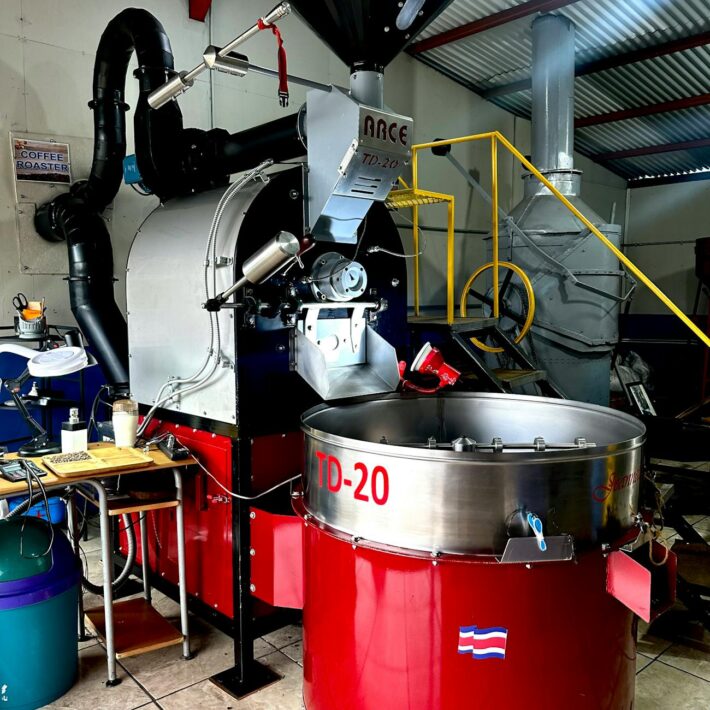Canned Tomato Business Ideas to Start in 2024

Contents
Canned Tomato Business Ideas to Start in 2024
Starting a canned tomato business in 2024 is an exciting prospect, but it's also essential to understand the market. With careful planning, you can successfully launch a profitable venture.
Tomato canning is a time-honored tradition, and fresh, locally-grown tomatoes can provide a distinctive advantage. Today's consumers are increasingly mindful of provenance and sustainability. This focus can significantly benefit your canned tomato brand.
Canned Tomato Business Types
Diversifying your canned tomato business can maximize your reach and capitalize on various market demands. Here are some avenues to explore:
-
Specialty Tomato Varieties: Focus on a niche market by selecting and preserving unique tomato varieties, potentially even developing unique recipes around them. This strategy caters to consumers seeking unique culinary experiences and specialized flavors. Examples include heirloom varieties, cherry tomatoes, or even tomatoes grown with specific cultivation methods.
-
Organic and Locally-Sourced Tomatoes: Consumers value products grown without pesticides or synthetic fertilizers. Partnering with organic farms to source tomatoes for canning can resonate with environmentally conscious consumers. You can highlight the origin of your tomatoes and their sustainable farming practices.
-
Different Tomato Can Sizes: Providing a variety of sizes and types of cans gives buyers options and makes your product accessible and appealing to different consumers and usage patterns. Consider targeting retailers and individuals with different needs.
-
Prepared Tomato Sauces and Pastes: Expand your offerings by creating ready-to-use tomato sauces or pastes. This allows for convenient consumption and simplifies cooking for consumers. Offer different flavors and consistencies to cater to diverse palates. Examples include marinara sauce, pizza sauce, and tomato paste.
-
Canned Tomato Products with Added Herbs and Spices: This can diversify your offerings, creating distinctive flavors. Collaborate with local spice merchants or farmers to source high-quality ingredients for distinctive blends. Examples include tomato-basil sauce or tomato-garlic paste.
-
Tomato-Based Baby Food Products: Cater to the evolving needs of young families. Consider utilizing certified organic or locally-sourced tomatoes for these products. These types of products offer significant potential, and you should carefully consider packaging, safety standards, and the regulatory aspects of the industry.
-
Canned Tomato Products for International Markets: Explore the possibilities of catering to international tastes. Consider incorporating spices or herbs that resonate with global culinary trends. Also consider local language packaging to target international communities, expanding into new markets.
-
High-End Canned Tomatoes: Offer premium canned tomatoes, with exceptional quality, using rare and unusual ingredients, focusing on the highest-quality tomatoes and careful processing. This approach can position your brand as a gourmet alternative. This business type demands detailed quality control and often requires specialized equipment.
-
Specialty Canned Tomato Products for Vegan Consumers: Developing lines of canned tomatoes suitable for vegan consumers can expand your reach.
-
Seasonal Canned Tomato Offerings: Capitalizing on the changing seasons can keep your business interesting and ensure a steady stream of new products. For example, during summer you could highlight summer heirloom varieties and introduce seasonal pasta sauces made from freshly picked vegetables.
-
Canned Tomato Products Targeting Specific Diets: Explore developing product lines that target specific dietary needs or restrictions, such as low-sodium or low-sugar canned tomatoes. This caters to diverse health concerns and dietary preferences in the modern market.
-
Different Preparation Methods: Providing various forms of canned tomatoes (like diced, crushed, whole) cater to diverse culinary styles and needs. This will appeal to varied customer bases.
-
Gluten-Free Canned Tomato Products: Expanding to create gluten-free canned tomato varieties can attract a growing niche of consumers who are sensitive to gluten.
-
Pre-packaged Canned Tomato Blends: Creating visually appealing and convenient pre-packaged blends of canned tomatoes, designed for specific recipes or uses, will attract consumers. Examples could include Mediterranean tomato blends or Southwestern tomato blends.
-
Educational Canned Tomato Products: Creating educational content or resources that inform consumers on how to best use and incorporate canned tomatoes into various recipes could expand your brand. You can provide tutorials, recipes, and cooking tips.
-
Canned Tomato Products with Nutritional Information: Providing transparent nutritional information on labels and packaging can be useful. It appeals to consumers concerned about their health and food choices.
Business Model Analysis
Understanding your business model for canned tomatoes is critical. Consider these facets:
-
Sourcing Tomatoes: Explore different sourcing methods. Organic tomatoes offer advantages to your consumers but have a higher cost. Analyze cost structures and compare them with demand.
-
Canning Process: Choose the right canning methods (like pressure canning or water-bath canning) to preserve the quality and safety of your canned tomatoes.
-
Packaging Options: Different packaging (like glass jars or metal cans) affect your business model. Assess your budget, consumer preferences, and environmental considerations.
-
Distribution Channels: Choose the ideal distribution channels. Consider farmers' markets, local shops, wholesale markets, and online platforms. Assess which channels best match your target market.
Branding and Marketing Strategies
Building a strong brand identity for your canned tomato business is essential for success:
-
Brand Naming: Consider names that evoke the region, flavor profiles, or the specific characteristics of your tomatoes. Consider names that resonate with your target market and your overall brand identity. Example brand names: "Sun-Kissed Tomatoes", "Hilltop Harvest," or "Farm Fresh Tomatoes".
-
Logo Design: Design an easily recognizable logo. A logo reflects your brand and helps your products stand out among competitors. Consider logos that suggest freshness, quality, and local sourcing. Consider the local appeal of your brand when designing your logo.
-
Slogans: Create a compelling tagline that highlights your brand's unique selling proposition. A memorable slogan can boost brand recognition.
-
Online Marketing: Utilize online platforms like social media to promote and connect with customers. Example slogans include "Experience the taste of a summer day", "Fresh from our local farm to your table", or "The taste of tradition".
-
Public Relations: Partner with local media outlets. Consider partnerships to gain visibility and credibility. This could increase your brand awareness.
Legal and Regulatory Considerations
Understanding local regulations is vital:
-
Licensing and Permits: Obtain all necessary permits and licenses. This may include food handling licenses and business licenses.
-
Health Codes: Adhere to local health and safety codes regarding food processing.
-
Food Safety Standards: Comply with food safety standards to maintain consumer confidence. Safety and quality control are critical.
-
Labeling Regulations: Ensure compliance with all labeling regulations and consider using images that visually reflect your brand and product.
Financial Planning
Developing a comprehensive business plan is essential:
-
Start-up Costs: Calculate all start-up expenses accurately. Include equipment, labor, marketing, and other costs involved.
-
Operating Expenses: Estimate recurring operating expenses to avoid unexpected cost issues down the line. Consider supplies and labor costs.
-
Projected Revenue: Predict your potential revenue to set realistic expectations. Assess market demand and sales potential.
-
Funding Options: Explore funding sources to start and sustain your business. These could include loans, grants, or investors.
Market Research
Understand the specific market of canned tomatoes:
-
Target Market Identification: Determine your target audience. Consider age, location, interests, and dietary needs when determining your target audience.
-
Competitor Analysis: Research your competitors' products, pricing, and marketing strategies.
-
Consumer Preferences: Assess consumer preferences for canned tomatoes to tailor your products and meet specific demands. Consider quality, packaging and pricing factors.
Team Building and Management
Building a skilled team is critical:
-
Team Roles: Identify the required skills and experience for each team role, such as processing, packaging, management, and marketing.
-
Talent Acquisition: Seek candidates with proven experience in food processing and canning or related industries. The right team can make all the difference.
-
Employee Motivation: Foster a positive work environment to maximize employee productivity.
-
Organizational Structure: Develop a clear organizational structure to ensure accountability. Consider how you will manage your production and marketing efforts.
Conclusion
Starting a canned tomato business in 2024 has significant potential. By understanding the market, developing a strong brand identity, and complying with legal and regulatory requirements, entrepreneurs can launch profitable ventures. Thorough research, strategic planning, and passionate execution are critical ingredients in the success of this type of business. Carefully consider your individual goals and circumstances to achieve success. We encourage you to dive deeper into the process by visiting our website at logomakershop.com, where you can find valuable resources and explore other exciting business concepts.

As our Chief SEO & Branding Strategist, Robert Ellison is a digital marketing visionary with over 25 years of experience transforming brands through smart, data-driven SEO and impactful storytelling. Known for his expertise in aligning technical SEO with authentic brand narratives, he leads our team in creating strategies that boost search rankings while building strong, sustainable brand identities. A trusted advisor and frequent industry speaker, Robert combines deep technical knowledge with creative insight, helping our clients not only reach the top of search results but also genuinely connect with their audiences.








